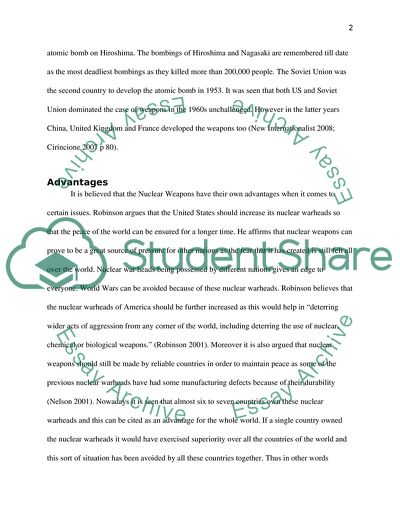Cite this document
(“The Nonproliferation Treaty: Nuclear Power Weapon Research Paper - 1”, n.d.)
The Nonproliferation Treaty: Nuclear Power Weapon Research Paper - 1. Retrieved from https://studentshare.org/social-science/1750599-nuclear-power-weapon
The Nonproliferation Treaty: Nuclear Power Weapon Research Paper - 1. Retrieved from https://studentshare.org/social-science/1750599-nuclear-power-weapon
(The Nonproliferation Treaty: Nuclear Power Weapon Research Paper - 1)
The Nonproliferation Treaty: Nuclear Power Weapon Research Paper - 1. https://studentshare.org/social-science/1750599-nuclear-power-weapon.
The Nonproliferation Treaty: Nuclear Power Weapon Research Paper - 1. https://studentshare.org/social-science/1750599-nuclear-power-weapon.
“The Nonproliferation Treaty: Nuclear Power Weapon Research Paper - 1”, n.d. https://studentshare.org/social-science/1750599-nuclear-power-weapon.


